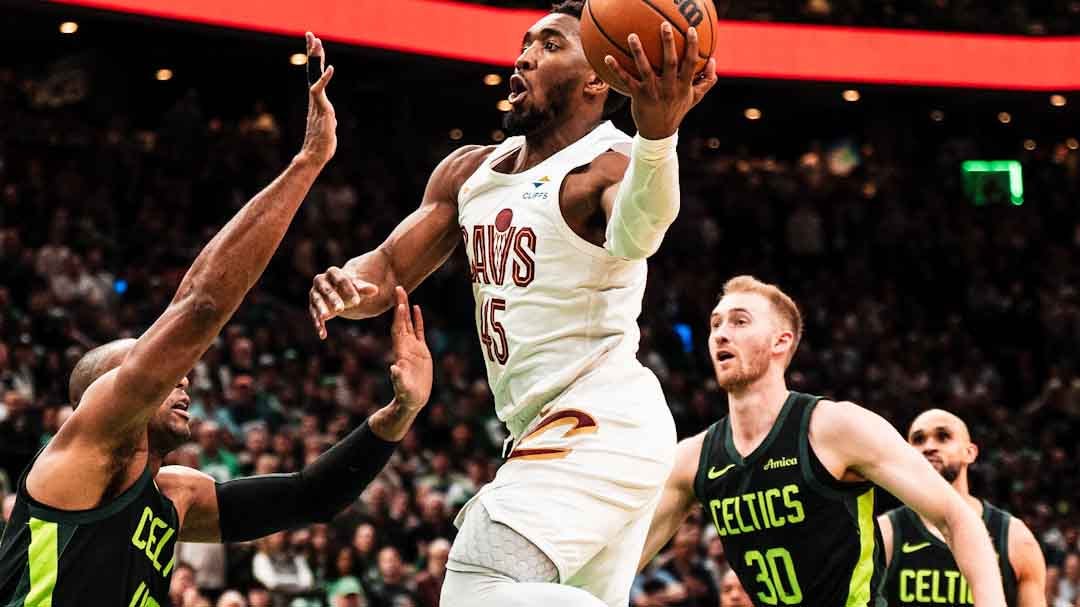Boston started the night like a team possessed, a team that had spent the entire day absorbing every insult, every doubt, every stat about Cleveland’s winning streak and decided, then and there, that they would make the Cavaliers pay for it.
Jayson Tatum didn’t just come out hot—he erupted. First, with a three, then another. Then a cut to the rim, the kind of movement that suggests a player isn’t thinking, just reacting, as if the game itself had already been written and he was simply following the script. By the time Cleveland’s bench had blinked, Tatum had 30 points, nine rebounds, and seven assists before halftime. Thirty. At the break. Like some kind of performance art piece on dominance.
And it wasn’t just him. Jaylen Brown moved like he was fueled by resentment. He attacked the rim, using his strength to muscle through contact, his drives less about grace and more about sheer inevitability. A man dragging defenders behind him like ghosts he refused to acknowledge. He finished with 37, but by the time his final points dropped, they felt like footprints leading away from a crime scene.
Because here’s where the Celtics’ night—their perfectly crafted masterpiece—began to unravel.
It started slowly, as these things do. A defensive miscommunication, a pass thrown half a second too late. Little things. You don’t notice a foundation cracking right away; you just hear the first creak, the first groan, and think it’s nothing.
And then came Donovan Mitchell.
Mitchell had been quiet in the first half, held to 15 points, existing on the periphery while Tatum conducted a symphony at the other end. But great scorers aren’t silenced, only postponed.
Somewhere in the third quarter, he decided—casually, almost absentmindedly—that he would take the game for himself. A three from the top of the arc, smooth as a brushstroke. A pull-up jumper, contested, but it didn’t matter. A drive, slithering between defenders who thought they had him cornered, only to realize they’d merely given him momentum.
And suddenly, Cleveland wasn’t just in the game—they were in control.
Mitchell’s 41 points weren’t just numbers on a stat sheet. They were the heartbeats of a team that, for a moment, looked dead. A team that had been outscored 25-3 in the opening minutes, that had stared at a 22-point deficit and chosen not to accept it.
Boston, missing Kristaps Porzingis and Jrue Holiday, had built themselves a castle. And Mitchell had stormed the gates, torch in hand.
With under a minute left, the Celtics had a chance—one last breath before the undertow dragged them out to sea. Tatum rose for a three, the crowd behind him, thousands of people willing the ball to drop, needing it to go in to make sense of the last two quarters.
It missed.
And with that, the Cavaliers sealed a 123-116 win, their ninth straight victory, a game that should have been a Celtics coronation turned into a lesson in the brutality of basketball.
By the time the final buzzer sounded, you could feel it: that gnawing realization, the one that tells you momentum is a myth, that no lead is safe, that every game is a slow-motion disaster waiting to happen.
The Celtics had given their fans a masterpiece in the making. They had painted the first half in gold.
And then, they had spent the second half watching it burn.




